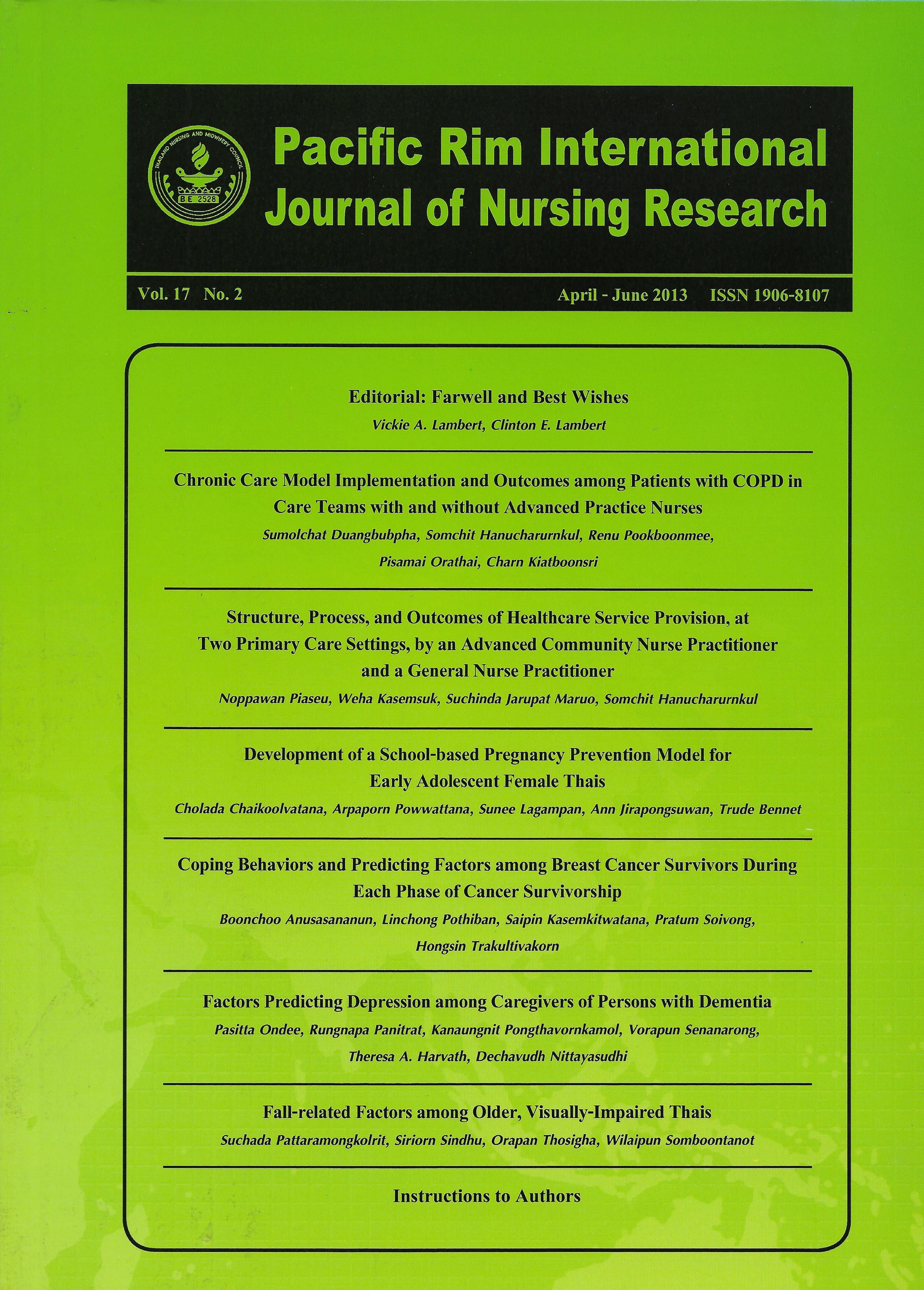Factors Predicting Depression among Caregivers of Persons with Dementia
Keywords:
Dementia, Depression, Caregiver, BurdenAbstract
Abstract: This study aimed to determine, based on Pearlin’s Stress Process Model, factors (i.e. behavioral problems and activities of daily living dependency of individuals with dementia, caregiver burden, and coping strategies of the caregiver) that predicted depression among caregivers of persons with dementia. Using stratified sampling, 226 caregivers of persons with dementia were recruited from three memory clinics in metropolitan Bangkok, Thailand. Data were collected via seven self-report questionnaires, including: a demographic data questionnaire; a revised Memory and Behavioral Problems Checklist; a modified Barthel Activities of Daily Living Index; the Zarit Burden Interview; the Jalowiec Coping Scale; and, the Center for Epidemiologic Studies Depression Scale. Data were analyzed via descriptive statistics and path analysis.
The results revealed the modified model fit the data well (χ2 = 0.990; df = 1; p = 0.443; RMSEA < 0.001; GFI = 0.998; AGFI = 0.974) and explained 51.4% of variation in caregiver depression. Behavioral problems of the persons with dementia were found to have a significant indirect effect on caregivers’ depression through caregiver burden, while activities of daily living dependency of the individuals with dementia was found to have a significant indirect effect on caregivers’ depression through caregiver burden. Behavioral problems and activities of daily living dependency of the individuals with dementia also had a significant direct effect on caregiver burden, while caregiver burden was found to have a positive direct effect on caregivers’ depression. The findings may be helpful with development of an effective nursing intervention program for promoting good mental health and decreasing depression among persons with dementia.
Downloads
Published
How to Cite
Issue
Section
License
Copyright: The Pacific Rim International Journal of Nursing Research, Thailand Nursing & Midwifery Council has exclusive rights to publish, reproduce and distribute the manuscript and all contents therein.








.png)



